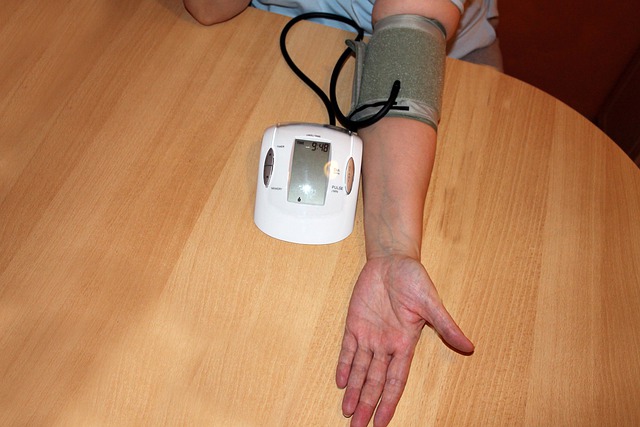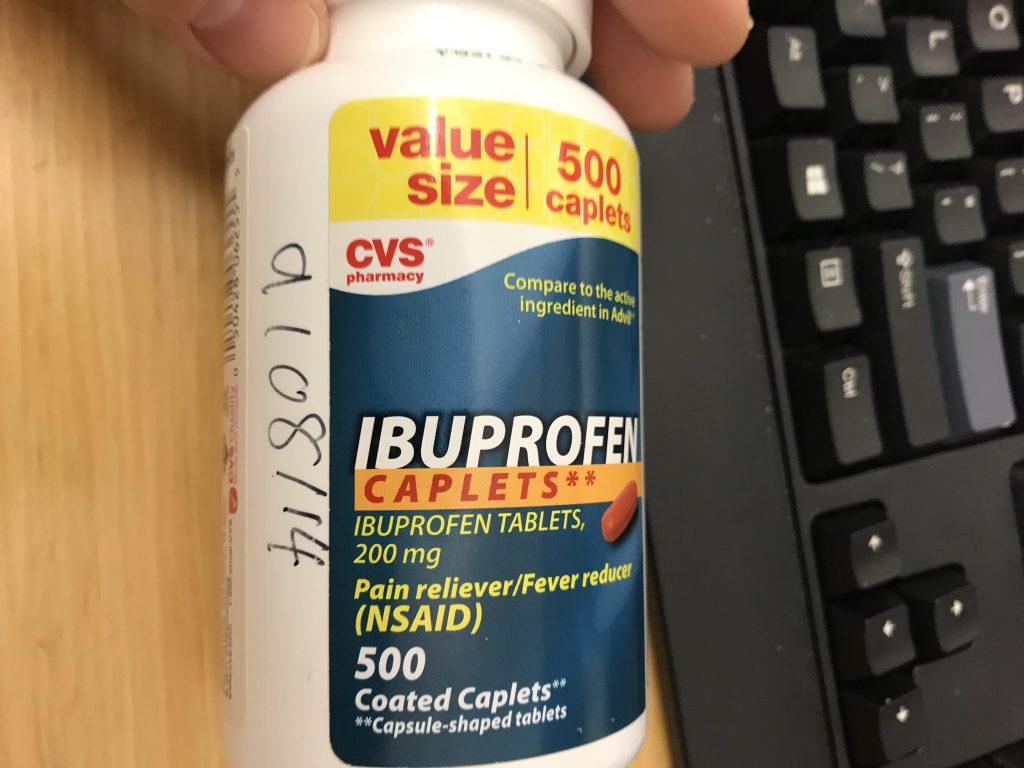Can Ibuprofen Increase Your Blood Pressure?

High blood pressure (hypertension) is a common condition in which the long-term force of the blood against your artery walls is high enough that it may eventually cause health problems, such as heart disease.
Blood pressure is determined both by the amount of blood your heart pumps and the amount of resistance to blood flow in your arteries. The more blood your heart pumps and the narrower your arteries, the higher your blood pressure. A blood pressure reading is given in millimeters of mercury (mm Hg). It has two numbers.
• The top number (systolic pressure). The first, or upper, number measures the pressure in your arteries when your heart beats.
• The bottom number (diastolic pressure). The second, or lower, number measures the pressure in your arteries between beats.
Certain medications can cause you to retain water, trigger certain imbalance that creates kidney problems, and increases your blood pressure. In this article, we shall be looking at the relationship between Xanax and high blood pressure.

What is ibuprofen?
Ibuprofen is an NSAID, which is a type of medication with analgesic, fever-reducing, and, in higher doses, anti-inflammatory properties. The World Health Organization (WHO) includes ibuprofen on its list of essential medicines. The list states the minimum medical needs for a basic healthcare system.
Ibuprofen reduces pain, fever, swelling, and inflammation by blocking the production of cyclooxygenase (COX)-1 and COX-2. The body releases these substances in response to illness and injury. If a person takes ibuprofen by mouth, they should notice the effects after 20–30 minutes.
Brand names are available for ibuprofen include:
- Advil
- Pediatric Advil
- Advil/Motrin
- Advil Migraine
- Medipren
- Motrin
- Nuprin
- PediaCareChildren’s Pain Reliever/Fever Reducer
- PediaCare Infant’s Pain Reliever/Fever Reducer Fever
- Caldolor
- Duexis
- IBU-Tab
- Neoprofen (ibuprofen lysine)
- Many others
How should ibuprofen be used?
Prescription ibuprofen comes as a tablet to take by mouth. It is usually taken three or four times a day for arthritis or every 4 to 6 hours as needed for pain. Nonprescription ibuprofen comes as a tablet, chewable tablet, suspension (liquid), and drops (concentrated liquid). Adults and children older than 12 years of age may usually take nonprescription ibuprofen every 4 to 6 hours as needed for pain or fever. Children and infants may usually be given nonprescription ibuprofen every 6 to 8 hours as needed for pain or fever, but should not be given more than 4 doses in 24 hours. Ibuprofen may be taken with food or milk to prevent stomach upset. If you are taking ibuprofen on a regular basis, you should take it at the same time(s) every day. Follow the directions on the package or prescription label carefully, and ask your doctor or pharmacist to explain any part you do not understand. Take ibuprofen exactly as directed. Do not take more or less of it or take it more often than directed by the package label or prescribed by your doctor.
Ibuprofen comes alone and in combination with other medications. Some of these combination products are available by prescription only, and some of these combination products are available without a prescription and are used to treat cough and cold symptoms and other conditions. If your doctor has prescribed a medication that contains ibuprofen, you should be careful not to take any nonprescription medications that also contain ibuprofen.
Swallow the tablet whole; do not chew or crush it.
If you are selecting a product to treat cough or cold symptoms, ask your doctor or pharmacist for advice on which product is best for you. Check nonprescription product labels carefully before using two or more products at the same time. These products may contain the same active ingredient(s) and taking them together could cause you to receive an overdose. This is especially important if you will be giving cough and cold medications to a child.
Nonprescription cough and cold combination products, including products that contain ibuprofen, can cause serious side effects or death in young children. Do not give these products to children younger than 4 years of age. If you give these products to children 4 to 11 years of age, use caution and follow the package directions carefully.
If you are giving ibuprofen or a combination product that contains ibuprofen to a child, read the package label carefully to be sure that it is the right product for a child of that age. Do not give ibuprofen products that are made for adults to children.
Before you give an ibuprofen product to a child, check the package label to find out how much medication the child should receive. Give the dose that matches the child’s age on the chart. Ask the child’s doctor if you don’t know how much medication to give the child.
Shake the suspension and drops well before each use to mix the medication evenly. Use the measuring cup provided to measure each dose of the suspension, and use the dosing device provided to measure each dose of the drops.
The chewable tablets may cause a burning feeling in the mouth or throat. Take the chewable tablets with food or water.
Stop taking nonprescription ibuprofen and call your doctor if your symptoms get worse, you develop new or unexpected symptoms, the part of your body that was painful becomes red or swollen, your pain lasts for more than 10 days, or your fever lasts more than 3 days. Stop giving nonprescription ibuprofen to your child and call your child’s doctor if your child does not start to feel better during the first 24 hours of treatment. Also, stop giving nonprescription ibuprofen to your child and call your child’s doctor if your child develops new symptoms, including redness or swelling on the painful part of his body, or if your child’s pain or fever gets worse or lasts longer than 3 days.
Do not give nonprescription ibuprofen to a child who has a sore throat that is severe or does not go away, or that comes along with fever, headache, nausea, or vomiting. Call the child’s doctor right away, because these symptoms may be signs of a more serious condition.
Does Ibuprofen affect blood pressure?
Yes, ibuprofen can cause your blood pressure to rise higher, and put further stress on your heart and kidneys because it is a Non-steroidal Anti-inflammatory Drug (NSAID). The average rise in blood pressure is 3/2 mmHg but varies considerably from person to person.
In addition, ibuprofen use may reduce the effect of all antihypertensive drugs except calcium channel blockers. Almost 20% of people with high blood pressure (hypertension) may inadvertently be interfering with their blood pressure control by taking certain medications, according to data from 27,599 people who participated in the National Health and Nutrition Examination Survey. The most common problem drugs are nonsteroidal anti-inflammatory drugs (NSAIDs) like ibuprofen (Advil), naproxen (Aleve), and many others. Other classes of drugs, such as certain antidepressants, may also increase blood pressure.
The researchers noticed that people who used drugs with the potential to raise blood pressure also were more likely to be taking more blood pressure medications and higher doses.





